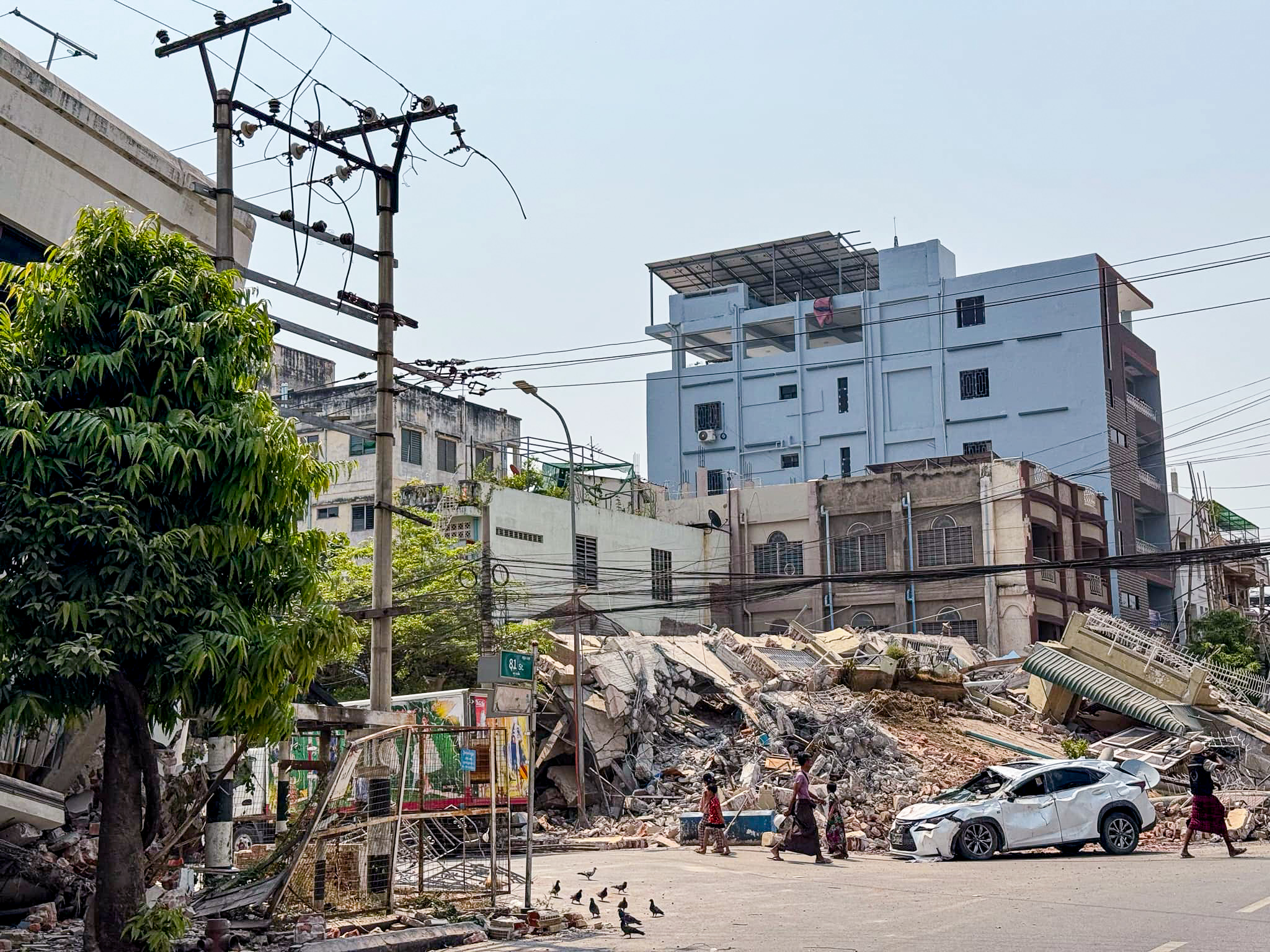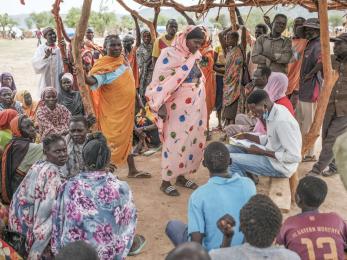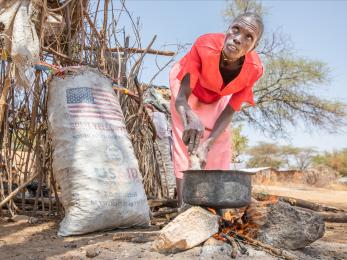Back to school: How we get kids to class during conflict

As children around the world are heading back to school, scores of young ones in South Sudan aren’t so lucky.
More than a year and a half of increasingly-vicious civil war has wreaked havoc on the lives of millions across the country, including 3.4 million children, many of whose schooling has been replaced with daily hardships like displacement, hunger, poverty, disease and gender-based violence.
That’s not to mention the trauma they’re likely to confront simply for growing up in a conflict zone.
That’s why Mercy Corps is working to implement emergency education for vulnerable children in some of the hardest-hit areas of South Sudan.
During times of war, schools are not the safe spaces they once were for children — they can easily become targets of military takeovers and attacks. In South Sudan's most battle-ridden states, 70 percent of schools have been closed since fighting first started.
And as families flee to escape the violence, kids are uprooted from the stability of their homes, schools and communities altogether.
Hundreds of thousands of children have been forced to drop out of school as a direct result of conflict in South Sudan. And without support, the combination of trauma and educational lapses during their developmental years can have serious consequences on their future.

We have built almost 100 temporary learning spaces in displacement sites and rural areas where displaced children are sheltering. And we’ve repaired 46 more that had been damaged by fighting.
The temporary learning spaces give teachers a place to hold makeshift classes and activities for at-risk children, ensuring they can receive continued schooling and support despite the unstable environment.
We also distributed School-in-a-Box kits, developed by UNICEF for the South Sudanese context, to the volunteer teachers and facilitated training to teach them how to utilise the materials. Each kit contains basic school supplies, like pencils, erasers, rulers and exercise books for up to 40 students, all in a locked box with a lid that doubles as a blackboard.
The teachers received early education kits for younger children, too, and recreational kits that include things like balls, whistles and scoring slates for hosting supervised recreational activities.

In addition to basic teaching methods, the teachers were trained to meet the heightened needs of the children that extend beyond the classroom, including psychosocial support to cope with trauma and stress, proper hygiene to combat disease, gender awareness and mine risk education.
Today, these teachers are able to hold classes from Monday to Friday — or Monday to Saturday in some areas where children need a greater opportunity to engage and manage stress. And with the training they’ve received, they can readily identify children that need extra psychosocial support and refer them for specialised assistance.
This guidance comes in addition to the academic lessons they provide, which follow the standard South Sudan curriculum of English, mathematics, science, social studies and religion, and supplementary — but vital — life skills education like hand-washing and peacebuilding.

These emergency classes are an important outlet for conflict-affected children — they are a place for them to form nurturing relationships, continue their development and learn the tools that will help keep them safe and healthy in spite of the war around them.
It’s critical these kids don’t fall through the cracks during this time of incredible uncertainty. Through this expanded education, our aim is to protect South Sudan’s children — and give them hope for a future beyond the current crisis.


